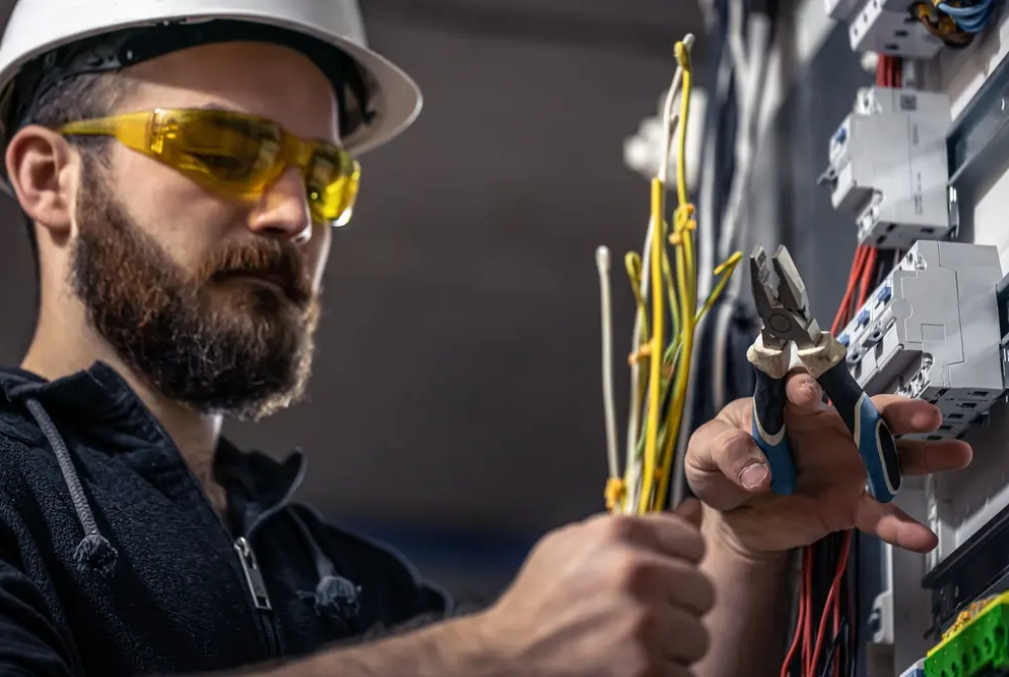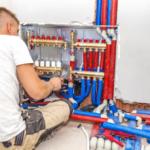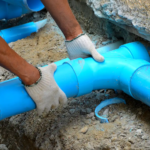For homeowners, thunderstorms pose serious risks, particularly to your home’s electrical system. A single bolt of lightning or a power surge can damage wiring, create dangerous hazards, and destroy an electrical panel installation in Cocoa Beach, FL. Fortunately, knowing how thunderstorms affect electrical systems—and what you can do to protect your home—can make all the difference in keeping your household safe.
Let’s explore how thunderstorms affect electrical systems and what you can do to protect your home from potential damage.
Electrical Surges During Thunderstorms
Power surges are a common occurrence during thunderstorms. When a power line is struck, a massive surge of electricity is sent through the grid. This excess power eventually makes its way into homes in the form of surges. When surges occur, they often cause damage that necessitates electrical panel repair and replacement of affected items. If you’ve ever had a TV or a computer mysteriously stop working after a storm, a power surge is likely the culprit.
Surge protectors can act as a line of defense against these surges. However, it’s worth noting that not all surge protectors offer the same level of protection. For homeowners with simple needs, a basic plug-in surge protector may suffice for individual devices.
Though simple surge protectors are helpful, whole-home surge protection offers the highest level of protection. These systems are designed to stop large surges before they reach your home’s wiring, making them a worthy upgrade, especially if you live in an area that frequently experiences storms.
Lightning Strikes and Direct Damage
Lightning doesn’t have to hit your home directly to cause damage. An errant bolt that strikes a nearby tree or power line can induce dangerous voltages in your home’s wiring. When this happens, the sudden spike can overwhelm your electrical system, leading to a need for an electrical panel replacement.
If lightning does strike your home, be sure to pay attention to signs of damage. Flickering lights, a burning smell, or certain devices not working as they should—all these can point to a lightning strike having affected your electrical system. If this happens after a storm, it’s crucial to have a professional inspect your home’s electrical system.
The Risk of Power Outages
Power outages can happen right after thunderstorms. They can have serious impacts on your electrical system if not addressed with timely electrical panel repair. When power is restored after an outage, the sudden rush of electricity can potentially damage electronics and appliances that are still plugged in. In some cases, repeated power outages can wear down your home’s electrical infrastructure, causing longer-term issues with circuits and wiring.
To protect your electrical system and appliances, unplug sensitive electronics during a storm. Investing in and using an uninterruptible power supply (UPS) system is also worth considering. These systems provide backup power for key devices like computers. Equipped with either or both, you can shut down your devices safely rather than suffer damage during an abrupt power outage.
Water and Electrical Hazards
Thunderstorms often come with heavy rainfall, presenting an entirely different set of problems for your electrical system. If water makes its way into your home—whether through a leaky roof, basement flooding, or backed-up gutters—it can damage outlets, wiring, and electrical panels. Water and electricity don’t mix well, and if water reaches any part of your electrical system, it can cause short circuits, fire risks, or electrical hazards.
If you ever notice water pooling near electrical components, stay away and contact your trusted provider of electrical panel services. Never attempt to handle electrical repairs in wet conditions. Water-damaged electrical systems are unpredictable and incredibly dangerous, and only a professional should evaluate and repair the affected areas.
Preventive Measures to Protect Your Electrical System
Protecting your home’s electrical system should start with prevention. First, consider installing whole-home surge protection to defend against unexpected spikes in voltage. Next, unplug sensitive electronics before a storm arrives. Finally, make sure your home is sealed and protected from water intrusions. Water damage to electrical systems can be just as hazardous as a lightning strike.
Additionally, hire a licensed electrician for regular inspections. This is a good way to make sure your home’s wiring and electrical panels are in proper working order.
Thunderstorms can wreak havoc on your electrical system. However, before they do, you can take charge and implement ways to protect your property and keep your family safe.
If you’re unsure about the current state of your electrical system or want to explore installing whole-home surge protection, now is the time to act. Don’t wait until the next storm hits. Take the necessary precautions to keep your home safe from whatever the weather may bring.





